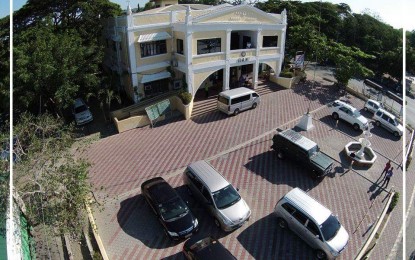
PLASTIC BAN. The municipal government of Bani, Pangasinan will implement a selective plastic ban starting March 1, 2020. Penalties range from PHP100 to P300 plus imprisonment for individuals and up to P2,500 fine and cancellation of business permit for business establishments. (Photo courtesy of Bani Tourism)
BANI, Pangasinan -- The municipal government of this town will start enforcing a ban on single-use plastics on March 1.
The implementation of the selective plastic ban is in accordance with the Municipal Ordinance No. 05 series of 2018 prohibiting, regulating, and prescribing certain uses of plastic for goods and commodities that end up as residual wastes; and promoting the use of eco-bags and other environmental friendly practices as an alternative.
In an interview Wednesday, information officer Krissy Jesy Pison said the ordinance covers all individuals and business establishments in the town.
Pison said fines and penalties of PHP100 for the first offense, PHP300 for the second offense, and PHP500 and or imprisonment of one month depending on the discretion of the court will be imposed upon individual violators.
While business establishments who will violate the ordinance will be charged with PHP1,000 for the first offense, PHP2,000 for the second offense, and PHP2,500 and cancellation of business permit for the third offense, she added.
Pison said the ordinance was passed in 2018 but the town was not yet ready for its full implementation at that time.
“But now, there is the immediate need to reduce wastes in the town, especially plastics,” she added.
The municipal government has encouraged the use of reusable or eco-bags.
“We are tapping organizations, mostly farmers’ organizations, to make ‘bayong’ (bags made of coconut leaves) and other alternatives to plastic,” Pison said.
She said some of these farmers’ organizations are recipients of the Department of Social Welfare and Development’s Sustainable Livelihood Program.
“We plan to have them trained so there would be more their members who will make ‘bayong’ or other alternatives to plastic,” she added. (PNA)
